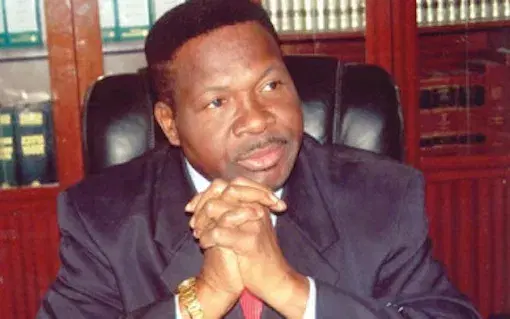The Federal Government has spent $15.55bn on debt servicing between 2019 and 2024, the latest data from the Central Bank of Nigeria shows.
Nigeria paid $588.33 million in debt payments between January and May of 2019, with $5.40 billion expected in 2020, according to The Punch.
The debt service payments increased in succeeding years, reaching $2.02 billion in 2021, $2.34 billion in 2022, and $3.43 billion in 2023.
Between January and May 2024, the country paid $2.18 billion in debt service, according to CBN data.
This represents a 270.9 per cent rise over the first five months of 2019, which totaled $588.33 million.
The $2.18 billion in May 2024 is about half of the $4.8 billion forecast by Fitch Ratings for the year.
This surge comes despite the government’s claim that it is changing its priority to domestic borrowing.
Fitch Ratings also expects that the country’s external debt servicing costs will rise by $400 million to $5.2 billion next year, heightening concerns about Nigeria’s debt sustainability.
According to CBN International Payments Data, the FG spent the most on debt finance over the last five years in 2020, totaling $5.40 billion.
According to FBNQuest Research, Nigeria’s external debt service payments increased significantly by $1.1 billion, reaching $3.5 billion in 2023.
This breakdown includes $1.9 billion in market debt payments and $1.6 billion in non-market debt repayments. Furthermore, the federal government intends to incur extra external debt, including N1.8 trillion in commercial borrowing and N1.1 trillion in concessional loans, as detailed in the 2024 budget.
FBNQuest Research anticipates a further increase in external debt service payments, consistent with Fitch Ratings’ estimates, as a result of the government’s aspirations to access commercial debt markets and anticipated expansion in concessional borrowings.
The government recently got $2.25 billion from the World Bank to support President Bola Tinubu’s economic reforms.
The two-part package includes $1.5 billion for the Nigeria Reforms for Economic Stability to Enable Transformation Development Policy Financing Program and $750 million for the Nigeria Accelerating Resource Mobilization Reforms Program-for-Results.
The Minister of Finance and Coordinating Minister of the Economy, Mr. Wale Edun, said, “We have undertaken bold and necessary reforms to restore macroeconomic stability and put Nigeria on a path to sustainable and inclusive economic growth. These reforms will create quality jobs and economic opportunities for all Nigerians.”
According to the report, the primary goal of the programme development is to increase non-oil revenues while preserving oil and gas revenues.










